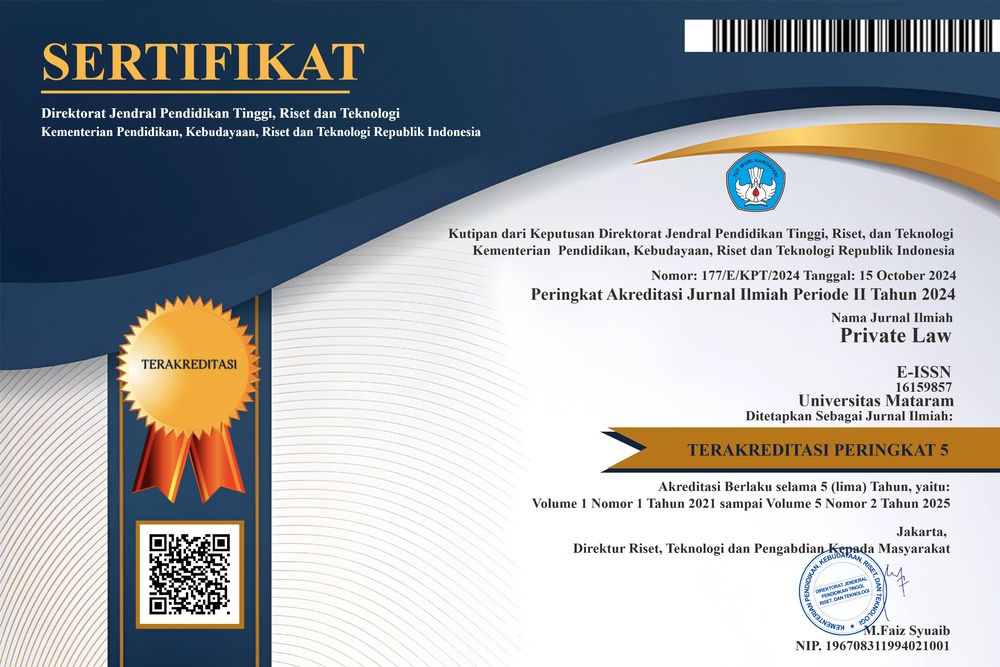Journal Policy
Private Law is committed to maintaining the highest standards of publication ethics and academic integrity. The following policies guide the journal’s operation:
-
Peer Review Process
All submissions undergo a rigorous double-blind peer review process to ensure the quality, originality, and relevance of published articles. Reviewers and authors remain anonymous to each other throughout the process. -
Open Access Policy
Private Law provides immediate open access to its content, supporting the principle that making research freely available to the public promotes greater global knowledge exchange. -
Publication Ethics
The journal adheres to ethical standards based on guidelines by COPE (Committee on Publication Ethics). Authors must ensure their work is original, properly cited, and free of plagiarism. Duplicate or redundant submissions are prohibited. -
Author Responsibilities
Authors must submit original research and appropriately acknowledge all sources. Any potential conflicts of interest must be disclosed. Authors are responsible for obtaining permission for any copyrighted material used. -
Editor Responsibilities
Editors make publication decisions based on the importance, originality, and clarity of the submission, as well as the quality of the reviewer's feedback. Editors maintain confidentiality of all submitted manuscripts. -
Reviewer Responsibilities
Reviewers must provide an objective, constructive, and timely evaluation of the manuscript. Any conflicts of interest must be disclosed, and all manuscripts must be treated confidentially. -
Copyright and Licensing
Authors retain copyright of their work published in Private Law. Articles are distributed under a Creative Commons Attribution License (CC BY-SA 4.0), permitting use, distribution, and reproduction with proper citation. -
Plagiarism Policy
All submissions are checked for plagiarism using reliable detection tools like Turnitin. Manuscripts with significant similarity to existing works will be rejected. -
Archiving Policy
The journal ensures electronic backup and preservation of access to the content via a dedicated repository and digital archive system. -
Complaints and Appeals
Authors, reviewers, or readers may submit complaints regarding editorial decisions or the peer-review process. Appeals will be carefully reviewed by the editorial board.











